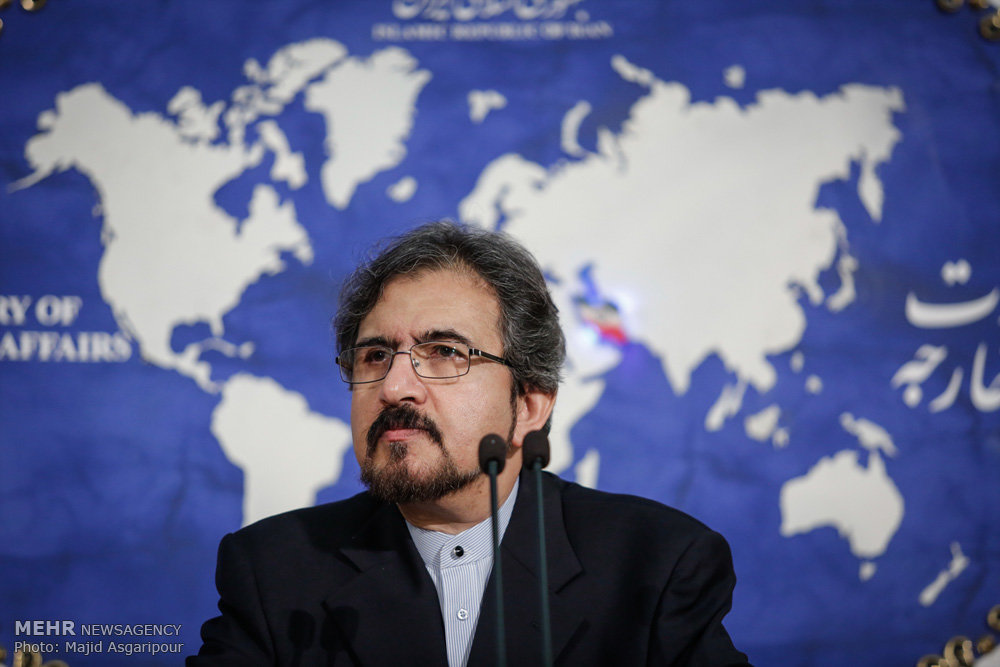An implemented ISA would fly in face of nuclear deal
December 5, 2016 - 21:27

TEHRAN – Iran’s Foreign Ministry has warned the U.S. administration of signing into law of an anti-Iran act, saying it goes against Washington's commitments under an international deal between Iran and world powers.
“We believe extension of the ISA is flawed and irrational,” said Foreign Ministry spokesman Bahram Qassemi at a weekly press conference on Monday in Tehran.
Qassemi was making the comments in reaction to a recent overwhelming vote by the U.S. House of Representatives and the Senate in favor of renewing the Iran Sanctions Act (ISA).
Once signed into law by President Barack Obama, the act would authorize sanctions against Iran for a ten-year period.
If not extended, the ISA expires by the end of 2016.
The ISA, which was the Iran and Libya Sanction Act until 2006 after it was ratified in 1996, was introduced during the first term of the Clinton administration to rule out investment in Iran’s energy sector.
The bill has drawn vehement condemnation from Tehran which says enactment of the ISA will run counter to the terms of the nuclear deal finalized in 2015.
Under the deal signed with six world powers of the U.S., Russia, China, Germany, France, and England, Iran committed to curb its nuclear program in exchange for sanctions relief.
Washington will violate the JCPOA if it does not remove all individuals and entities set forth in the ISA in connection with Iran’s nuclear program, as stipulated in the nuclear deal.
However, Qassemi appeared upbeat toward the fate of the deal, citing that it is an internationally-backed pact which Washington cannot violate unilaterally.
“I’m optimistic toward BARJAM (JCPOA) getting on the right track and the U.S. leaving the current path of extending the sanctions,” he said. "It will have a strong international backing and its contravention is not something that could happen easily.”
The Iranian diplomat further called on other signing parties to keep their side of the bargain.
“We expect from the three European countries (of France, England, and Germany), China, and Russia to stand by Iran and this is our expectation that these countries play their historic role in this regard.”
In a meeting with Iran’s Foreign Minister Mohamad Javad Zarif in Beijing on Monday, Chinese Foreign Minister Wang Yi underscored that “What is important is that all resolve whatever problem that may arise through negotiation and consultation in the light of the principle of commitment to the terms of the JCPOA.”
Also, Russian Foreign Ministry’s Director of the Department for Non-Proliferation and Arms Control Mikhail Ulyanov told RIA Novosti on Monday that “We expect that the agreements on the Iranian nuclear program will be implemented duly regardless of how things will unfold.”
Iran has threatened to retaliate against the act if and once it is signed into law by President Barack Obama and implemented, noting scenarios have been worked out.
“Our reaction will be primarily political and legal, and if that does not work, then we will go to other packages we have already anticipated in each specific area,” the spokesman explained.
Previously, Alaeddin Boroujerdi, head of the Iranian parliamentary committee for national security and foreign policy, had threatened Iran would step up production and enrichment of uranium up to 190,000 SWU in the event of the ISA being implemented.
AK/PA
Leave a Comment